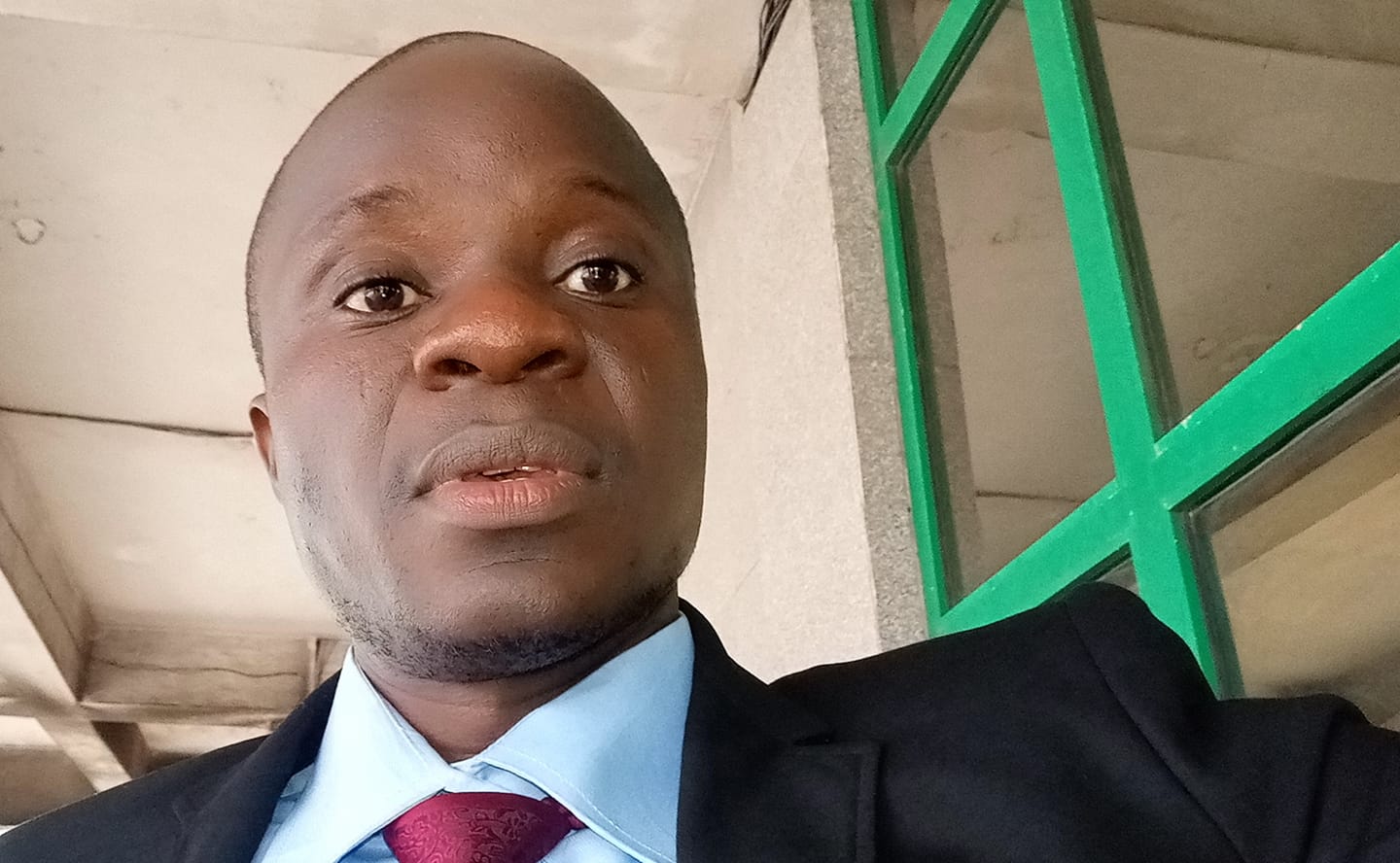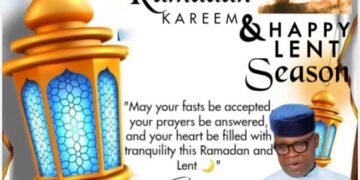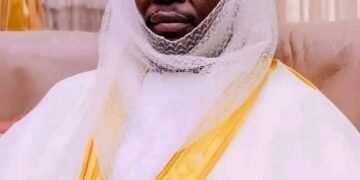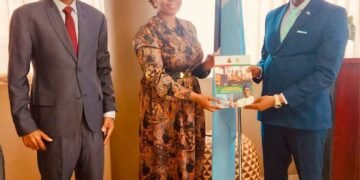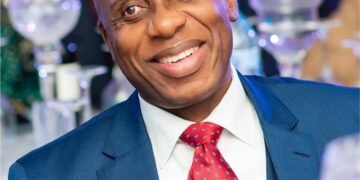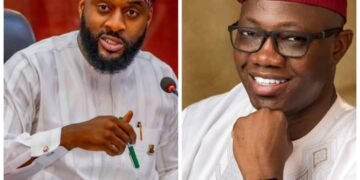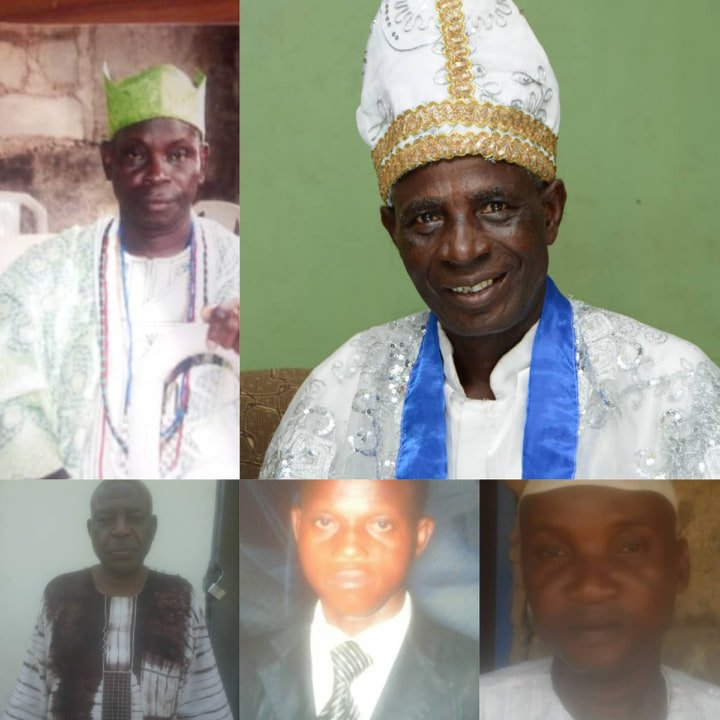OPENED OPPORTUNITIES THROUGH OPEN CONFERENCE IN MITIGATING PLAGIARISM IN NIGERIAN HIGHER INSTITUTIONS: A REVIEW
……………………………………………………….
SOLOMON ADETUNJI
Department of Mass Communication, Federal Polytechnic Offa, Nigeria
Email: adetunji.solomon@gmail.com +234 0805 150 1071
ABSTRACT
The inaugural Open Conference in 2017 at Obafemi Awolowo University, Ile-Ife; enabled revolution through sociological perspectives that examine the benefits and inalienable rights Open Access offers through topic and discussions, questions and answers and hitherto unknown opportunities which Open Conferencerenc on Open Access, Open Education and Open Data have to offer. The impacts of the inaugural conference births dynamic views and diverse areas of interests the youths can situate themselves in, in a world constantly changing through technology. Open Education sums the need for reconciliation and utilization between what Open Access delivers in form of intellectual advancement of humanity. With Open Education, the Age of Rebirth is redefined through the available educational and social platforms resources. The methodology explored is the comparative method that examines the past with the present in terms of access and lack of it. The results manifest in the fact that data research and innovation that glorify social progress with cohesion are no longer utopian. With Open Data, individual (or group) can fight battles that he or she can win. The limitations exist in the fact that there is an economic limitation to Open Access, Open Education and Open Data in Nigeria. Data to access information are paid for when undergraduates’ survival equally comes first. Despite this huge obstacle, to advance the research works of students in Nigerian tertiary institutions remains realistic and attainable, though at a slow pace.
Keywords: OpenCon, Open Access, Open Education, Open Data, Research, Resources, Impacts, Revolution
I. INTRODUCTION
There is urgent need to reiterate the essential of Open Education which shares similar traits in flexibility and accessibility with National Open Universities across the world, aims primarily at the fulfillment of the philosophical meandering that is anchored on the way people should produce, share and build on knowledge (Emeka, 2017). Significant is the fact that while plagiarism abhors the denied credibility to the originator of the content being used or used, there are also various obstacles and hitches that promote the habitual use of contents without primary acknowledgement of the source. Among such obstacles are: the high poverty level, availability of materials that are not in tandem with contemporary realities, legal procedures, poor educators, and the declined academic culture. These absolutely hinder the “functional effect” (Klapper, 1960); which is a dominant paradigm in media roles of educating the populace on the needs to shun plagiarism. If media can succeed in the information and entertainment of the heterogenous audience, the media can as well play crucial roles in the mitigation of plagiarism.
The arrival of OpenCon first held at Ile-Ife in 2017, Nigeria, being an inaugural, is a child of necessity whose delivery is timely and a desired catalyst. Since the world is now in the era of methods, not muscles, as well as the fact that the world has become a networked society through networked localism, it is vital and mind-lifting to see the emergence of OpenCon 2017 Ife as the pace-setter in the Southwest Nigeria. The tragedy of ignorance is announced once again.
While the tripod stand of OpenCon entails: Open Access, Open Education and Open Data; it is important to note that none of these can be attained without the mind revolution. The mind is the control system of the body; it is also the creative center of the body. It is the creator of all good and evil ideas. It is that component of the body which allows you to challenge the existence of certain things (Emeka, 2017). Frankly, revolution is a sudden change of ideas or beliefs. Revolution describes a sudden departure from the past and the usual ways of doing things. It also describes the means through which radical efforts are used to achieve an intended result.
Significantly, the opening up of the mind to reason leads to the desired dreamed society. OpenCon 2017 Ife aims to advance research works done by students in Nigeria tertiary institutions, primarily to open-up their mind to this reality. This is a call to the rising number of academic research works that end up as waste of resources. These resources can be open and build confidence in them towards being given an Open Access. The neglected undergraduate researches devaluate capability. However, once the undergraduates understand that their academic projects will be laid bare to the whole community, and accessible to the global community, more attention will be allotted and deployed to the research they conduct, and equally strive to curb plagiarism (Tiamiyu, 2017). An open graduate academic research will create the following:
- Bridging graduate with potential employees.
- Advancing academic research output.
- Appreciating efforts.
- Leverages.
- Better and ideal approach to environmental and various social issues.
- Discovery of innovations and inventory.
- Assurance of intellectual property.
Based on the foregoing, it is inevitable that restrictions should never be placed on the mind on how it should perceive events or whatsoever. Logic should be the only food of the mind to ensure purity of the mind and the avoidance of prejudiced thoughts altogether. Every mind is a potential great mind; it is only through logical and creative reasoning that the mind becomes great and manifests this greatness through the body (Emeka, 2013).
II. LITERATURE REVIEW
There is high tendency that OpenCon would alter the pace at which plagiarism thrives in the writing of research works of scores of Nigerian undergraduates, primarily due to Open Access, which could trigger the ability to learn from the works of others rather than have their contents stolen (Coulthard, 2004). Tough one cannot outrightly say that OpenCon and its tributaries are enough to eliminate the negative attitude of those who are always bent on verbatim copying of others people work, which is more of attitudinal problem of those who find themselves in the academic sector by accident rather than by preference (Okeke, 2001). To buttress the sorry state of plagiarism regardless of the Open Access, Open Education and Open Data, Lawal (2019) reports that Professor Peter Okebukola, the Executive Secretary National University Commission (NUC) stated that 60 percent of theses (project reports) of Nigerian undergraduates were plagiarized works.
It is a pointer to the fact that the problem is a well-familiar one. Nordling (2018) also reported a scenario that points to the growing culture of plagiarism, when Emmanuel Unuabonah, a chemist at Redeemer’s University in Ede, had an experience that made him concluded plagiarism “was not good for the image of Nigerian science,” because four Nigerian scientists cum researchers copied data of a German researcher. With Open Access, Open Data and Open Education, it is not yet uhuru to announce the demise of plagiarism, because it is believed to be done sometimes unconsciously via ignorance or the inability to know what makes a research work a plagiarized item (Insley, 2011, Wan et al). The pace at which Open Education thrives in the writing of research works of scores of Nigerian undergraduates calls for applause for those who have goodwill towards Nigerian education, its prospects and glory. It is not only the fulfillment of the requirements of award of bachelor degree or higher national diploma that should be the catalyst for project writing in Nigeria tertiary institutions; rather, the genuine interest in academic engagements beyond the walls of the ivory towers.
Instinctive is the fact that Open Education which shares similar traits in flexibility and accessibility with National Open Universities across the world, aims primarily at the fulfillment of the philosophical meandering that is anchored on the way people should share knowledge . Significant is the fact that while plagiarism abhors the denied credibility to the originator of the content being used or used, there are also various obstacles and hitches that promote the habitual use of contents without primary acknowledgement of the source. Among such obstacles are: the high poverty level, availability of materials that are not in tandem with contemporary realities, legal procedures, poor educators, and the declined academic culture. These absolutely hinder the functional effect which should be dominant in the education of the populace on the needs to shun plagiarism. If media can succeed in the information and entertainment of the heterogenous audience, the media can as well play crucial roles in the mitigation of plagiarism.
There is urgent need for Nigerian higher institutions to reiterate the essentials of international communication on academic content building and sharing, beyond the sheer glorification of authorship, through availability of their soft and hard copies of authored books, even through the third party called agents, both online and traditional approaches. Insightful is the import of the timeless statement that invokes the undenied impacts of books: “sharing is probably the most basic characteristic of education: education is sharing knowledge, insights and information with others, upon which new knowledge, skills, ideas and understanding can be built.”2 The availability of thousands or millions of accessible materials make the act of plagiarism an innocent venture (Whiteneck, 2002). This is similar to the the fact that The Internet too is an innocent culprits with the plagiarists (Trinchera 2001).
III METHODOLOGY
The methodology explored is the comparative method that examines the past with the present in terms of access and lack of it to information, education and data respectively.
IV. TOPICS AND DISCUSSION
Daramola (2017) reiterates the importance of academics to be academically inclined through sound conducts and dissemination of students’ research works. There are issues involved in the idea of execution of undergraduate research. Nevertheless, the starting point remains the first leg of the tripod of OpenCon – Open Access.
Without access to the academic resources, the undergraduate researcher is already damaged. This aptly finds similarity in the Five Stages of Communication Impacts (Adetunji, 2014), which are:
i. Access: (To the desired channel)
ii. Exposure: (To what the undergraduates have access to).
iii. Content: (The details entails of what Exposure offers).
iv. The Information Outcome: (The knowledge derived from the Content).
v. The Social Outcome: (The utilization of the knowledge gained in the society).
Within the diagnosis of the genesis of Access – access remains an opportunity to reach development of any kind; especially information, right from the Biblical era: Esther knew that access was a scarce commodity1 . The Age of Authoritarian (Theory of the Press) glorified the anti-democratic currents of political thought, based on the belief in the validity of authoritarian, totalitarian regimes in which the state are omnipotent, state power is totally unchecked, the individual and the people are without political rights, and the democratic procedure of free choice is absent. The term is connected with the concept of authoritarianism, which entered the general usage in the 21st century, and which is used to designate political theories and practices inimical to democracy2.
Same developments manifest in many African nations which Nigeria is a prime player, and Nigerian undergraduates being victims of denied access to vital resources towards the manifestation and attainment of their human potentials. Open Access is not totally free in Nigeria, undergraduates pay for data to have access. There are certain obstacles to Open Access among which are: lack of political-will to make the citizenry knowledge-possessed, policy over-lapping, and the indifferent attitude of undergraduates, among others. The focal point of the issues discussed remains and revolves round the denied access, partial access, and the ignorant of the available access (Daramola, 2017). One of the common problems undergraduates encounter is the dearth of ideal libraries, either the conventional or the 21st century compliant E-library. The challenges confronting undergraduate research are structured in three simplified ways: Student Related Challenges: time, financial needs, topic to research on, etc. Supervisor Related Challenges: lack of resources, time constraints, etc.; and the Institutional Related Challenges: poor educational policy implementation, poor research, funding, brain-drain, poor researching methods/outdated approaches, etc. (Daramola, 2017).
The question and answer section offer the reality-check on the experiences of academics and undergraduates – who presented views on what matters: should the undergraduate present topics or be given topics to research on? As it is within this clime, the ample time for the undergraduates to work on their research remain elusive, however, the masters students have a slice of luxury of time to work on their dissertations due to structured descriptions of semesters.
The moment of clarity cannot be replaced with ambiguity when Open Education becomes right, rather than privilege. No doubt, Open Education opens the power of focus and responsibility inside individuals. An option to this focus on the elimination of weakness is that you strive to recognize your strength and put your best effort to the achievement of your favoured activities (Olutimilehin, 2012). Olushola (2017) glorifies the Sum of All Knowledge as Wikimedia’s driving vision and focal point of daily existence that advances the course of humanity. It is not enough for the undergraduates to do research and keep it. Rather, to advance such undergraduate research, there is urgency to make such work(s) available for others to be educated on such area of interest. In its genesis, Wikimedia started with 277 people in the year 2003, founded by Jimmy Wales. Being non-profitable, it aims at the following objectives that champion Open Education. These are:
- Operate the technology behind Wikimedia sites.
- Engineer privacy, security and speed for the users.
…………………………………………………….
1. Esther Chapter 4: verses 14-17; and Esther Chapter 5 verses 1-5. The New International Version (NIV).
2. The Great Soviet Encyclopedia. 3rd Edition.
- Build new features for the users
- Defend contributors and knowledge against legal threat.
- Support Wikimedia volunteers, contributors around the world.
- Raise funds to support Wikimedia.
Knowledge does not happen in isolation, everybody needs to contribute to the sum of all knowledge. Wikimedia is 100% donation-based, with 2.5 million donors globally, and currently operate a budget of $63 million to make Open Education accessible through Wikimedia platforms (Olushola, 2017).
The background of Open Education is traced to the Age of Enlightenment (Reinaissance Period, 1500 – 1600) in which industries grew and there were exodus of learned minds. The Wikimedia has the vision to realize: “A world in which every single human being can freely share in the sum of all knowledge”. The last 16 years of Wikimedia presents:
- 40 million + volunteers authored articles in nearly 300 languages.
- 25 million + items on Wikipedia
- 75 thousand + active editors, contributing at least 5 edits per month.
- 15 billion + page views every month.
Of course, Wikimedia operates 12 other free knowledge projects: Wikiquote, Wikimedia Commons, Wikidata, Wikiversity, Wikisource, Wikitionary, etc., (Olushola, 2017). For Nigerians to partake in the Open Education being Championed by Wikimedia and related platforms, there is urgent need to preserve Nigerian cultures and traditional heritages, monuments and sacred places for generations now and generations ahead; through photographs that have details, descriptions with verifiable and reliable sources. The interest in the anthropological and sociological disciplines and research in such areas are low and highly depleted.
Without revival in the aforementioned areas, the world the Wikimedia looks towards in 2030 – All Being Shared in the Sum of All Knowledge; will just walk-over Nigerians through indifferent and being spectators of global movement for ideal change that touches on humanity in its entirety. Everybody needs to continue to the sum of all knowledge, answers the various questions that were asked after the topics and presentation.
Life, Data and Winning comes as the focus of the Open Data presentation. Data are not for fun. Data are not for being data sake. Data entail four (Adetunji, 2014) critical factors:
- Spiritual strength: (elements rule the world)
- Physical strength (good health to utilize data)
- Mental strength: (being mindedly sound), and
- Emotional strength: (to love others to use data to their advantage) (Babayemi, 2017).
The origins of data and Open Data are traced to the Biblical Adam to Noah 3 and the transition to the Egyptian task-masters, foremen, and slave-drivers efficiently utilized4 as well as the chronology of Genealogies of Biblical Moses and Aaron5 . One of the historical renditions of Open Data was equally found in the accounts of David’s census of the Israel’s army6. Open Data no doubts help in decision-taking and being informed. Information is power finds relative importance in Open Data.
The routine data management process for undergraduate research and early academic professionals embrace the following steps:
- Data Sourcing: (from students, farmers, market women, etc.)
- Data Collection: (from Twitter, Facebook, Kahoot, etc.)
- Data Verification: (to avoid confusion and plagiarism like a plague)
- Analyze Data: (for simplification, leverage, use Google spread sheet, etc.)
- Data Publication: (for journalism teaching and practice, inofgr.am, datawrapper.de, etc.)
- Data Use: (using data to solve socio-economic, cultural and political problems (Babayemi, 2017). To solve problem(s) entails decision to use knowledge gained to improve decision that leads to better result.
Winning is attainable for all and sundry when citizen education is accessible through Open Access, Open Education that embraces Open Data to create more access through networks like: schoolofdata.org, crissismappers.net, okfn.org, datakind.org, etc. (Babayemi, 2017). While data have lives of their own, yet there is economic limitation. It is within the frame of logic to know that Data Verification has limitation(s) in the developing countries, especially in Nigeria during elections and conflict situations. There is a great insight on where to situate the journalism practice and the journalists in the heat of electoral reporting, in regards to election results with the context of Open Data. Remarkably, electoral officers have been prosecuted in the court of law and sentenced, thus, Independent National Electoral Commission (INEC) Nigeria is not open enough in practice. Had it been it is open enough, there won’t be issues with prosecution and being sentenced. There is need for more error-free mechanism(s) that will erase figure
misgivings and manipulations.
The meaning of accuracy which Data Verification aims to attain leaves much to be desired when it opens the question: Does accuracy mean reporting every detail observed or being factual? (Yau, 2008). The need to check language usage cannot solve conflict situation that involves casualties, the injured, and the missing person. Bad news reporting through error of fact is not the choice of the people. That is not journalism at its best!
………………………………………………………
3. Adam to Noah Genealogy: Genesis Chapter 5 verses 1-32. The New International Version (NIV).
4. Foremen, Slave-drivers: Exodus Chapter 5 verses 6-19. The New International Version (NIV).
5. Genealogies of Biblical Moses and Aaron: Exodus Chapter 6 verses 13-25.The New International Version (NIV).
6. David Counts The Fighting Men: II Samuel, Chapter 24, verses 1-15. The New International Version (NIV).
V. THE IMPACTS
The significances of OpenCon will always vibrate and echo across the years ahead. This is not a predictive journalism though, the interests shown and the responses to the need for individual to be catalyst for the spread of OpenCon across the Southwest Nigeria in particular, and its eventual ubiquity across Nigeria sooner, raises hope and expectations. With three keynote speakers that focused on: Open Access – Conduct and Dissemination of Students’ Research Works in Nigeria Tertiary Institutions: Issues, Challenges and Prospects. On Open Education – The Sum of All Knowledge, while Open Data offers: Life, Data and Winning; participants have seen the need to participate in knowledge-driven digital age, by keying into the issues discussed. Open Education through Wikimedia attracted participants, while Open Data remains a topic that will need further diagnosis and deep simplification during subsequent conferences.
The social network platforms were under-utilized, which could have played significant roles by engaging online communities through their comments and likely questions. It is a learning curve on how to maximize the significance of social media as the Instagram link: #OpenCon_2017_Ife; was announced midway, as well as the Twitter handle; which should have been in place prior the day of the inaugural OpenCon. It is vital to note that many Nigerian undergraduates are fans of Facebook more than any social network platform. With average awareness, they could have participated rather than follow the event.
Other academic professionals could have loved to have the conference watched at their leisure time, there is need to create YouTube link and Podcast – to provide opportunity for people to subscribe to and receive them automatically as they are uploaded (Corriette, 2008). Other uses for Podcasting are: training, programming, etc. The bottom line is that social media is a serious business. If used intelligently, the spare time can bring one into contact with the right people who can make your dreams come true (Adeyemo, 2012). There is need for women inclusion among the keynote speakers, because gender inequality was observed. There is conscious need for periodic appraisal of timeliness, consideration for academic calendar that allows more undergraduates and early academic professionals to participate, and the need to develop a set of strategies to multiply the spread of OpenCon in Nigeria.
VI. CONCLUSION
With the exodus of the learned participants, and the eruption of interests in Open Access, Open Education and Open Data, the justification for the proliferation of the OpenCon in the Southwest Nigeria cannot be accidental. To rely on participatory discourse beyond the arena of classrooms on issues that affect the chronological scenes of decline in educational standard and development, would be the ideal, sustainable, and suitable approach to continuously imbibe the dynamic student-centered approach that utilizes the appeal of interactions which would stimulate intellectual contributions, and the continued progressive roles in the 21st century.
Frankly, data remain subtle weapons of influence or destruction. It is a fact that is echoed by Jim Bergeson that: Data will talk to you if you are willing to listen. OpenCon remains the interface between advanced ideals and positive attitudes to issues critical to humans and humanity. Each of us can enroll in the school of data. Let OpenCon continue to lead Open Access, Open Education and Open Data as innocuous pursuits from all corners of the world. The Southwest Nigeria has cut its own space.
REFERENCES
Adetunji, S. (2014). Sociology of Mass Communication: The Realities in The Narrative. Kaduna: Print Media Bank Printing and Publishing.
Adeyemo, T. (2012). Making Good Use of Social Networking. TELL. (May 28). Lagos: TELL Communications Limited.
Babayemi, O. (2017). Life, Data and Winning. OpenCon2017 Ife, Obafemi Awolowo University, Ile-Ife, Nigeria. (bit.lky/openconife).
Corriette, D. (2008). The Importance of Podcasting for Practitioners. (February26). www.bestmanagementarticles.com,http://www.women-internet- marketers.com
Coulthard, M. (2004). On Plagiarism, Patch Writing and the Problems of Overseas students in British Universities. http://www.business-english.ch/downloads/ Malcolm%20Coulthard/AESLA.art.2004
Daramola, O. (2017). Conduct and Dissemination of Students’ Research Works in NigeriaTertiary Institutions: Issues, Challenges and Prospects. Obafemi Awolowo University, Ile-Ife. Nigeria.
Emeka, O. (2013). The Mind Revolution. The Guardian. (December 5). Lagos: The Publishers.
Insley, R. (2011). Managing plagiarism: a preventative approach. Business Communication Quarterly 74. (2).
Lawal, Iyabo. (2019). Nigerian Universities and the Plague of Plagiarism. The Guardian. (30 May). Lagos: Guardian Publishers.
Nordling, Linda. (2018). In Nigeria, A Battle Against Academic Plagiarism Heats Up. (June 27). https://www.sciencemag.org/news/2018/06/nigeria-battle-against-academic- plagiarism-heats
Okeke, B. S. (2001). Quality management and national goal attainment in education: the case of Nigeria.Inagural lecture presented at the University of Port Harcourt 8th Feb. http://www.academia.edu/1856174/The_case_of_Nigeria
Olushola, O. (2017). Wikimedia – The Sum of All Knowledge. Wikimedia UG. Nigeria.
Olutimilehin, K. (2012). Success Strategies: The Power of Focus. The Guardian. Lagos: The Guardian Publications.
Tiamiyu, B. (2017). Overview of OpenCon Ife. Obafemi Awolowo University, Ile-Ife, Nigeria.
Trinchera, T. (2001). Cut and Paste Plagiarism: What It Is and What To Do About it. Community & Junior College Libraries. 10 (3).
Wan, R.; Nordin, S. B. T. E.; Halib, M. B. & Ghazali, Z. B. (2011) Plagiarism Among Undergraduate Students in an Engineering-Based University: An Exploratory Analysis European Journal of Social Sciences 25 (4).
Whiteneck, P. (2002). What To Do With a Thought Thief. Community College Week, 14 (24).
Yau, Y.Z. (2008). The Dilemma of The Journalist in Conflict Situations. Daily Independent. (January 11). Lagos: Independent Newspapers.
#


